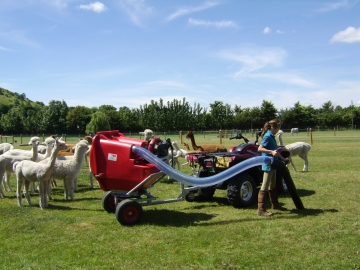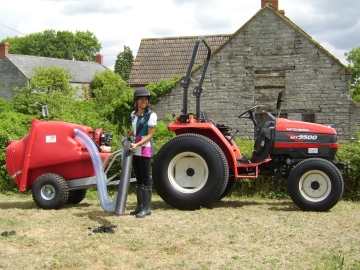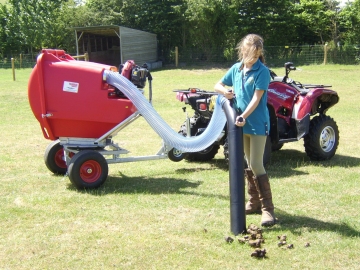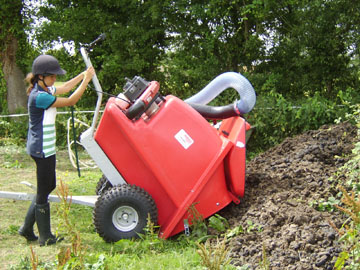
PADDOCK CLEANERS AND POO PICKERS FOR SALE - MANUFACTURED IN THE UK
For sales, questions or advice call us on 01278 555 222

PADDOCK CLEANERS AND POO PICKERS FOR SALE - MANUFACTURED IN THE UK
For sales, questions or advice call us on 01278 555 222
Why Should You Poo Pick?

Photograph taken at Wellground Alpaca Stud
Parasites and removal of droppings from the pasture
The life cycle of most equine parasites involves a period of time outside their host and on the pasture or paddock.
Eggs produced by the adult worm are passed in the dung where they continue their development into infective larvae on the ground. As the horse grazes it ingests the infective larvae and the cycle begins again.
The aim of a worming programme is to minimise livestock exposure to these parasites and good pasture management is one way of achieving this.
The removal of droppings plays a very important part towards an effective worming regime since an adult horse with a low worm count of 100 eggs per gram, producing about 15kg of droppings a day, will contaminate the pasture with a large amount of eggs on a daily basis.

How horses graze
Horses prefer to graze on younger, more nutritious, immature plants and will try to avoid areas that contain droppings.
If dung is not collected on a regular basis then large parts of the pasture can become "rough" and less palatable as the plants mature and weed infestation increases. This can drastically reduce the amount of available grazing, which for many domestic horses is often limited, and so increase their chances of exposure to infection.
Infective larvae cannot survive in hot, dry conditions nor can they withstand harsh frosts, but in the UK we are now experiencing a much milder and wetter climate. This change is allowing them to survive longer on the pasture and further increase the possibility of infecting grazing animals throughout the year. The Ascarid egg can remain viable in the soil for many years so it is advisable that removal of droppings should be practiced all year round and not just in the grazing season.

Pasture management
Drug companies and vets are aware of the importance of good pasture management.
With the onset of resistance to some of the pharmaceutical wormers on the market it is accepted, that in order to preserve the efficacy of our wormers, we should minimise their use and not just rely on them alone. If your establishment is using herbal wormers it is equally important that good pasture management is practiced all year round.
Regular egg counts should form part of a worming regime as they can also help determine the level of contamination on the pasture, and give a good indication that the risk of exposure has been reduced once a system to collect the dung has been implemented.

Fast poo picking
There are various field cleaning machines available which can help lessen the workload of clearing dropping from pasture, especially if you have a large area of land to clear.
The paddock vacuum is extremely efficient at picking up droppings, especially in wet conditions, and can be more effective than picking up the droppings by hand with a wheelbarrow.
Some owners may be reluctant to invest in a paddock vacuum cleaner initially but it is one of the tools that can become an essential part of an effective worming programme in your establishment.
Removing droppings from the pasture by hand can be extremely time-consuming and labour intensive, the benefits of using a paddock vac, both for the horse and the land they graze on, cannot be overestimated.
Statistics
A single horse is capable of passing tens of thousands of small redworm eggs in its dung each day.
A typical horse weighing 450kg produces 5-12 pats or approx 24kg of dung a day; that's 10 tonnes a year.
An adult horse with a low worm count of 100 eggs per gram producing a daily total of around 15kg of droppings will contaminate the pasture with 1.5 million eggs each day.
Why Should You POO PICK? information provided by Margaret Clynick, owner of Equi-Lab www.equi-lab.co.uk
Tel: 01326 379026 Mobile: 07973 532882 Email: equilab@btinternet.com
P.O. Box 240, Falmouth, Cornwall. TR11 5WY
CONTACT US
If you have any questions regarding parasites and removal of droppings from your paddock or would like help choosing the right paddock cleaner, please either call us here at Paddock Vacuum Cleaners on 01278 555 222 and we will be happy to help or advise you.